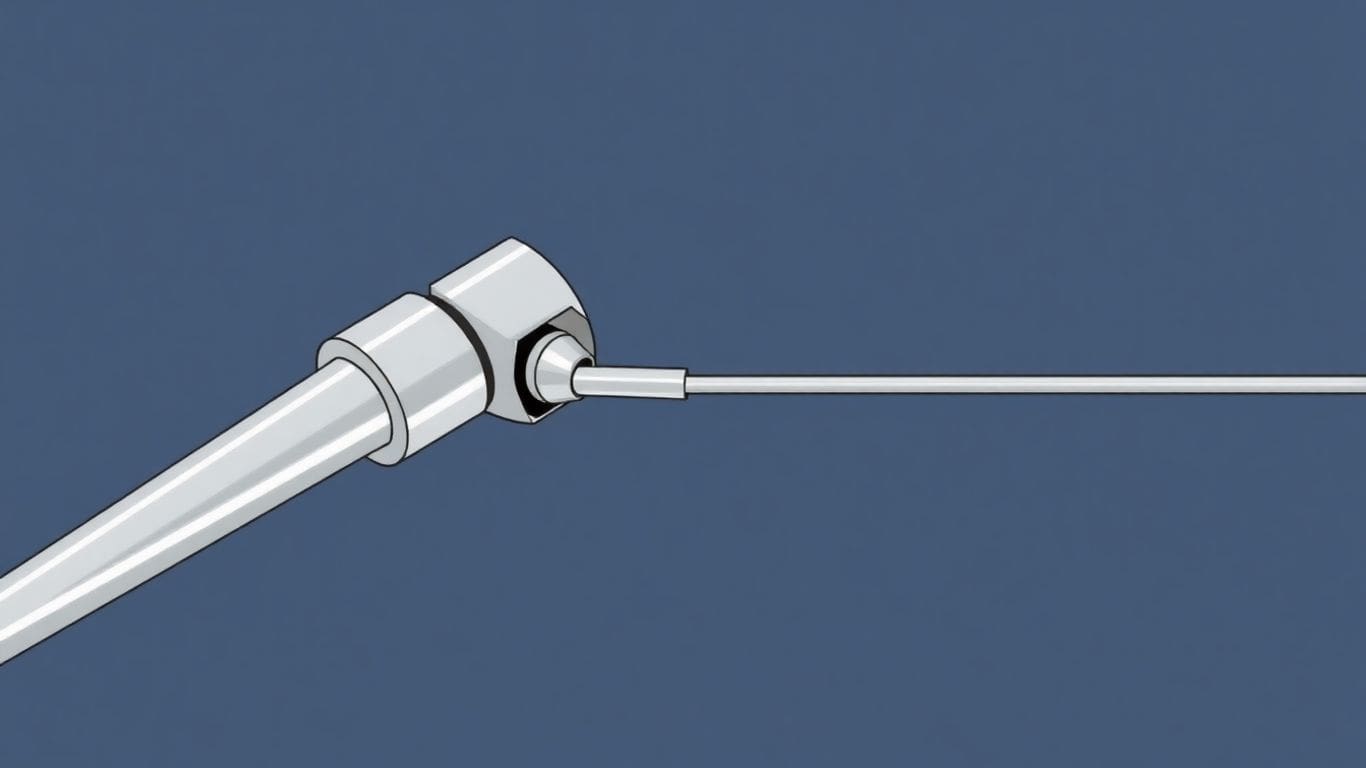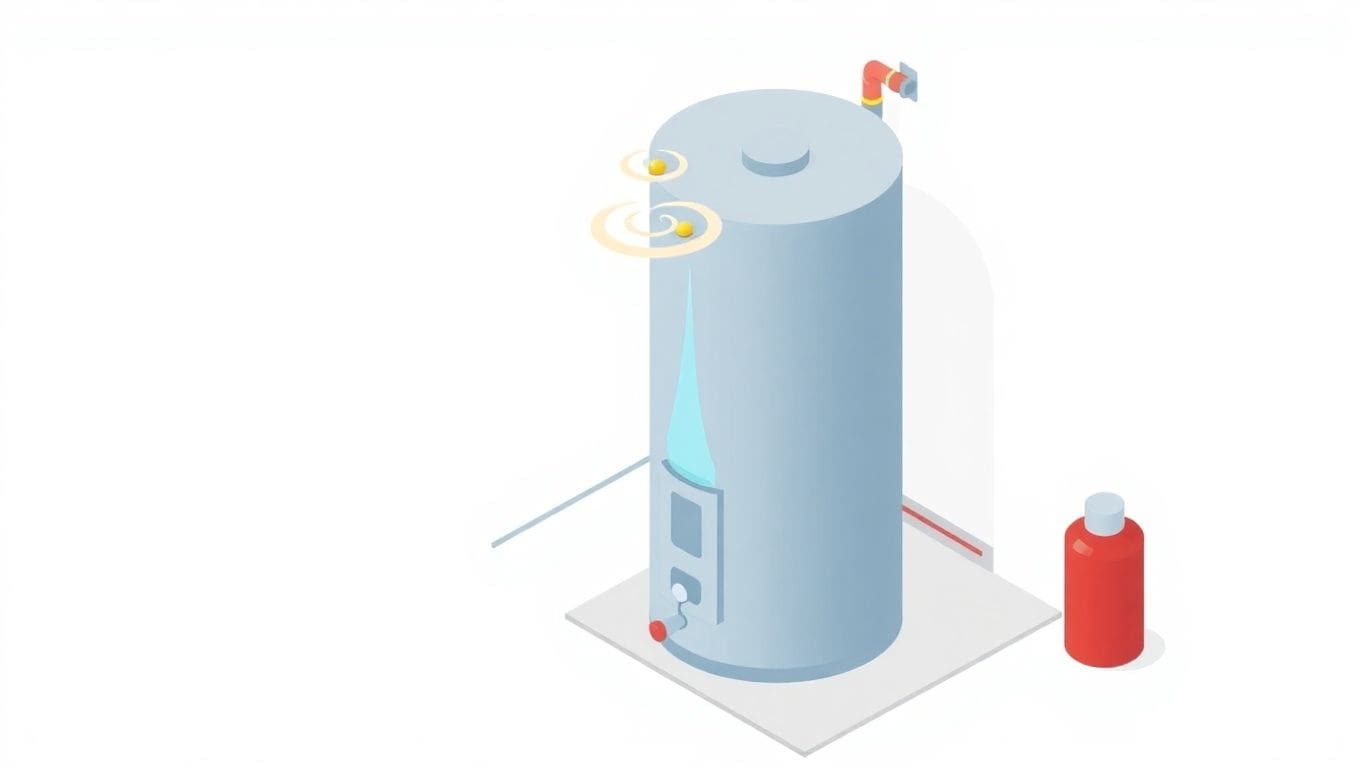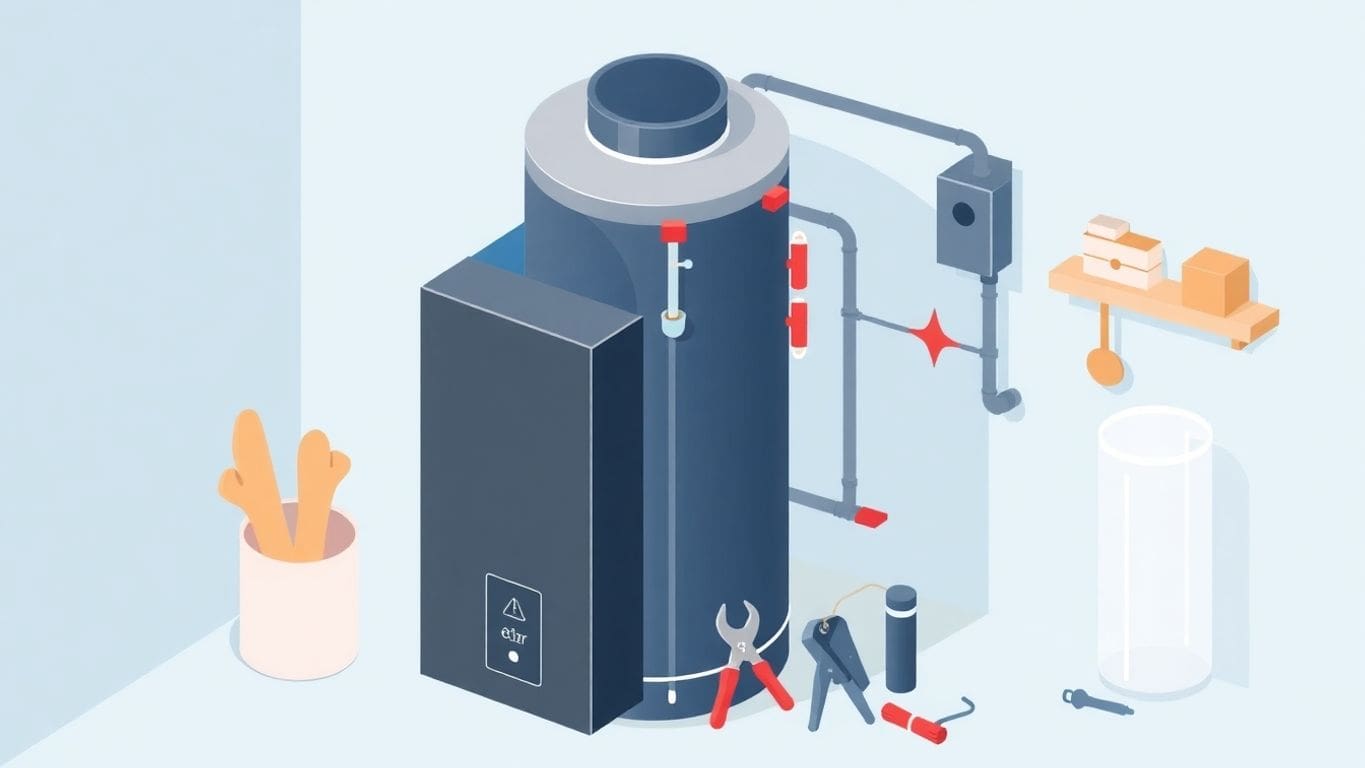
If your water heater is making gurgling noises, it might be a sign of a problem that needs attention. Understanding the reasons behind these sounds can help you take the right steps to fix the issue. This article will guide you through the causes of gurgling noises, how to fix them, and tips for preventing future problems. Whether you’re a DIY enthusiast or prefer to call a professional, we’ve got you covered with simple solutions and advice.
So, your water heater is making weird gurgling noises? Don’t panic. It’s probably just sediment build-up. Over time, stuff like sand and minerals from hard water settle at the bottom of the tank. This gunk can make your heater work harder and less efficiently. It’s like trying to boil water with a bunch of rocks at the bottom of the pot.
If you live in an area with hard water, your water heater is more likely to have mineral deposits. These deposits are mainly calcium and magnesium. They settle at the bottom and create a barrier between the water and the heating element. This makes your heater use more energy and can cause those annoying gurgling sounds.
When water heats up, it moves through the sediment and minerals. This movement causes gurgling. It’s like water trying to push through a pile of pebbles. If left unchecked, this can lead to overheating or even damage to your heater. So, it’s important to keep an ear out for these noises and take action if needed.
Keeping your water heater free of sediment not only stops the noise but also helps it run better and last longer. Regular maintenance can save you from costly repairs down the road.
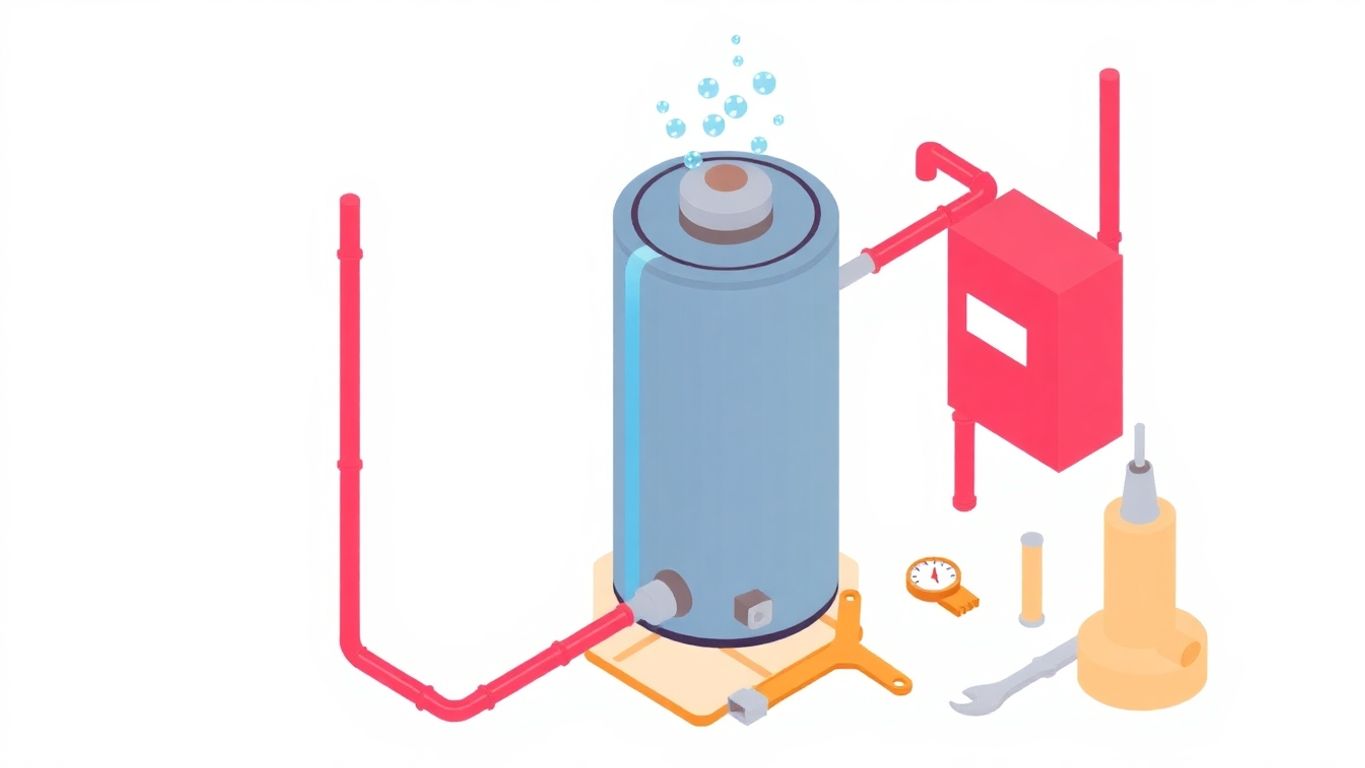
Before you start, gather some basic tools. You’ll need a garden hose, a bucket, and a wrench. Having the right tools makes the job easier and faster. Make sure you have a safe place to drain the water.
First things first, safety! Turn off the power to the water heater. If it’s electric, switch off the breaker. For gas heaters, set the control valve to "pilot." Also, shut off the water supply. Safety is key to avoid accidents.
Taking these steps can help stop the gurgling noises and improve your water heater’s efficiency. Regular maintenance keeps your heater in top shape.
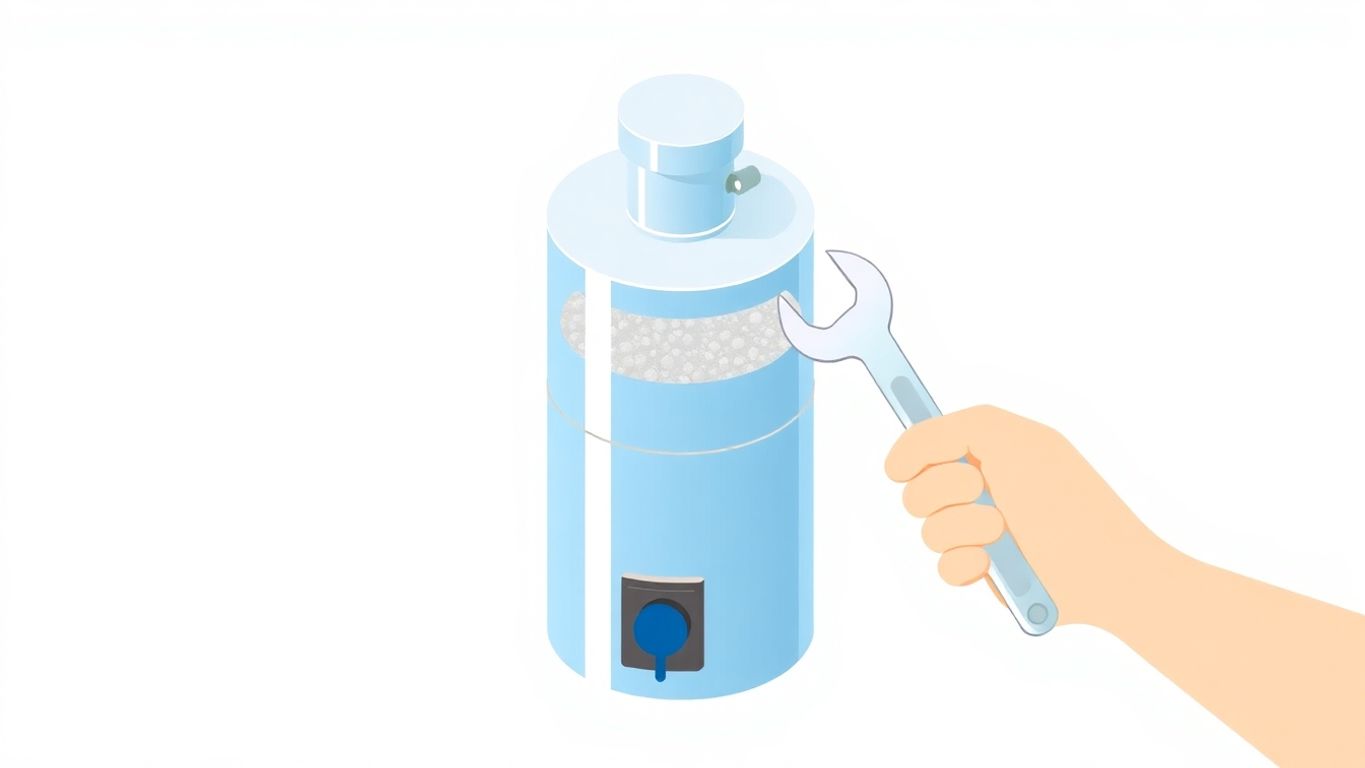
Keeping your water heater in top shape is easier than you think. Regular maintenance can save you a lot of trouble. Here are some simple steps you can follow:
A little bit of care goes a long way in keeping your water heater running smoothly.
If you have hard water, a water softener might be a good idea. Hard water has lots of minerals that can cause build-up. A water softener reduces these minerals, helping your heater last longer.
Sometimes, doing it yourself isn’t enough. Professional cleaning services can give your water heater a deep clean. They have the right tools and know-how to get rid of tough sediment. Plus, they can spot potential issues before they become big problems.
Keeping up with these tips not only helps your water heater last longer but also keeps it working efficiently. That means hot water when you need it, without the gurgles!
Sometimes, it’s best to leave things to the pros. If you notice water leaking from your heater, it’s time to call someone who knows what they’re doing. Leaking tanks can’t be easily fixed and usually mean it’s time for a new heater. Also, if your water is still cold after you’ve checked the thermostat, it might be a bigger problem than you can handle. Strange noises like popping or banging? Those are signs you need expert help.
Picking the right plumber can make a big difference. Look for someone with good reviews and fair prices. Ask friends or family if they have recommendations. Make sure the plumber is licensed and insured. Trust is important, so choose someone who makes you feel comfortable.
Hiring a plumber isn’t free, but it’s worth it to fix serious issues. Get estimates from a few places to compare. Remember, sometimes the cheapest option isn’t the best. Spending a bit more might save you money in the long run if the job is done right. Don’t forget to ask about any warranties or guarantees they offer.
When in doubt, it’s better to call a professional than risk making the problem worse. They have the tools and know-how to get your water heater back in shape.
First up, flushing the water heater tank. Sounds fancy, but it’s pretty simple. Over time, gunk like minerals and sediment settle at the bottom of your heater. This can mess with how it works. Here’s how you can flush it out:
Next, let’s talk about the inlet control valve. If your water heater makes screeching noises, this might be the culprit.
Lastly, inspect for leaks. A leaky water heater can cause all sorts of trouble.
Remember, some noises and issues are normal, but if you’re unsure, it’s always best to get a professional opinion. Fixing things yourself can save money, but safety is key.
By tackling these DIY solutions, you can keep your water heater running smoothly and maybe even save on a repair bill or two. Good luck!
So, your water heater’s making weird noises, and you’re thinking it’s about to explode? Not always the case! Some noises are just normal sounds of the heater doing its thing. A little pop or crackle doesn’t mean it’s broken. Sometimes, it’s just the sound of water heating up.
Water heaters can sound like they’re up to something, but a lot of times, it’s nothing serious. Here are some noises you might hear:
While some noises are normal, others can be a sign of trouble. Here’s when you should worry:
When in doubt, give a professional a call. It’s better to be safe than sorry. If your water heater is over 10 years old and making strange noises, it might be time to think about a replacement. Keeping up with regular maintenance can help avoid these problems and extend the life of your heater.
Hard water is water that has a lot of minerals like calcium and magnesium. These minerals can make your water taste different and leave spots on your dishes. Hard water isn’t bad for you, but it can be tough on your water heater.
When hard water heats up, it leaves behind mineral deposits. These deposits can build up inside your water heater, making it work harder. Imagine trying to ride a bike with flat tires—it’s kind of like that. Your heater uses more energy, which can lead to higher bills.
Over time, all those minerals can cause real problems. They can create a layer of gunk at the bottom of your heater. This makes it harder for the heater to warm the water. If it gets bad, it might even damage the heater. You might end up needing a new one sooner than you’d like.
Before you start messing with your water heater, make sure it’s safe. First, turn off the power. If it’s electric, flip the breaker. If it’s gas, turn off the gas valve. Next, turn off the water supply. Look for a valve on the cold water line and twist it shut. This stops water from flowing while you work.
Working on a water heater can be risky. You don’t want to get shocked or burned. Be careful when dealing with wires or hot surfaces. Make sure everything is cool before you touch it. Take your time and don’t rush things.
Gear up for safety! Wear gloves to protect your hands from hot water or sharp parts. Safety glasses are a good idea, too, to keep stuff from getting in your eyes. If you’re dealing with dust or fumes, use a mask to breathe easier.
Always put safety first when working on a water heater. A little caution goes a long way in keeping you safe.
Taking care of your water heater can make it last longer. Just like a car needs oil changes, your water heater needs regular check-ups. Regular maintenance can add years to its life. This means fewer replacements and less hassle.
When your water heater is clean and working well, it uses less energy. This means lower bills for you. Sediment build-up can make your heater work harder, using more power. By keeping it clean, you save money and help the environment.
Fixing small problems before they become big ones can save you a lot of money. Regular check-ups can catch issues early. This way, you avoid expensive repairs or even having to buy a new heater.
Keeping up with your water heater maintenance is like brushing your teeth. It might not be exciting, but it sure does prevent big problems down the road.
Alright, let’s talk about the two main types of water heaters: gas and electric. Gas water heaters use natural gas to heat the water. They’re usually faster at heating compared to electric ones. But, you gotta have a gas line, and they might cost a bit more to install. On the flip side, electric water heaters use electricity. They’re generally easier to install and can be used anywhere there’s an electric outlet.
Here’s a quick comparison:
| Feature | Gas Water Heater | Electric Water Heater |
|---|---|---|
| Heating Speed | Faster | Slower |
| Installation | Needs gas line | Needs electric outlet |
| Cost | May be higher | Usually lower |
Tankless water heaters are pretty cool. They heat water only when you need it, which means no more running out of hot water. These are great if you’re looking to save some energy and space. But, heads up, they might be pricier upfront.
So, how do you pick the right one for your home? Think about your needs. If you’ve got a big family, maybe go for a gas heater for quicker hot water. If space is tight, a tankless option could be your best bet. And remember, always consider the costs, both now and down the road.
Picking the right water heater is like choosing a pair of shoes. You want something that fits your needs and feels right for your home. Take your time and weigh the pros and cons.
Gurgling noises often happen when there is sediment or mineral buildup in the tank. This buildup can trap water and create steam bubbles that make the gurgling sound.
You can fix it by flushing the tank to remove the sediment. This is usually done once a year to keep your water heater working well.
Ignoring gurgling noises is not safe. It can lead to bigger problems, including damage to the water heater.
You should flush your water heater at least once a year to prevent sediment buildup.
You will need a garden hose, a bucket or a drain, and possibly a wrench to open the drain valve.
You can do it yourself if you feel comfortable, but hiring a plumber is a good option if you’re unsure.
Besides gurgling, you might hear popping, sizzling, or screeching sounds, which can indicate different issues.
You should call a plumber if you see leaks, hear loud noises, or if the heater is not working properly after you’ve tried to fix it.

